Being a consumer is both difficult and easy; we live in a world where nearly any wish or desire is yours to be had by opening your wallet and going and looking for it. There are a ton of companies just lining up to sell you all kinds of crap, and hopefully keep selling it to you. It’s difficult because if you stop to take a moment, and not only think of “do I need this” but also “what is the cost of me getting this” when it comes to something beyond the price.
I’m a huge fan of NBC’s The Good Place, and they summed it up so well at the end of the last season when they pointed out that their point system was broken because all it took was buying a tomato for someone to end up in the Bad Place (or worse, a chicken sandwich). You end up contributing to climate change, pesticide usage, and labor abuses; and it’s not just a joke on a sitcom, there are protests going on against Wendy’s, maker of square hamburgers and scorching Twitter burns because of who they use to supply their tomatoes in some regions.
A few months ago, I wrote an article that was a little bit weird for our site, mostly because it was getting past the product and looking at how the sausage was made for what has become a big focus of our site: video games. I won’t like, it wasn’t an easy article to write, mostly because it’s something that is still a struggle for me… I want to love video games, but the industry around it makes that hard. How long can I just hold my nose and ignore the bad things around them.
I’d love to say that since I wrote that article, things have improved greatly and we can gleefully get back to buying all of the video games we want… but that’s not how the world seems to work in 2019. I’d been mulling an article for some time to write about why I would be passing on Borderlands 3 as a follow-up to that first article, while also talking about how some of the problems can extend even to smaller studios and publishers abusing employees, volunteers, and other studios.
Before I could get it going, Activision|Blizzard (and the NBA) decided that they were going to face plant extra hard and bring the ethical price of games front and center in the ****show of the week. It’s not at all helped by the fact that every time I try to write something on it, they just make it worse.
Calls to boycott followed (easy for me, since I’d started that before I wrote the last article), and there’s been all sorts of hot takes, on both sides, as the story keeps unfolding. Activision’s stock price has taken a small hit for it, which is kind of funny, since it’s the market behavior that encourages what they are doing, but it remains to be seen if any of this is lasting change or if they can ride it out before the next controversy hits next week.
Let me be very clear, though, to start this… I am not here to talk about the ongoing protests in Hong Kong, or Chinese politics in general, in this story. I have opinions, but they’re not really relevant here (and if you’ve read my stuff, you can probably guess which way my opinions are leaning). This is about three American companies that are doing things that are, at best, dubious in their home country, and this was never going to end up going well for them. The complaints that drive the problems are well known, and I won’t go into them here directly, but let’s leave it that the people who are frustrated with these actions have some valid points about the problems going on.
A Missed Layup
I don’t know if this would have been quite as big of a story with Activision|Blizzard if the story around the NBA hadn’t have exploded first. You want to know when you messed up big in modern-day, Twitter-runs-the-world, America? When you get people like Ted Cruz, Marco Rubio, Beto O’Rourke, and Chuck Schumer (all politicians if the names don’t ring a bell) agreeing on anything. In a true show of bipartisanship, the anger was pretty unified over this one, and that’s just a weird thing these days.
This all arguably started when the GM of the Houston Rocket’s, an NBA team that has fairly substantial ties to China: Yao Ming played for the Rockets, and they are among the most popular teams in the international market (despite, you know, being located in the armpit of the great state of Texas known as Houston), made a tweet that supported the ongoing protests.

The tweet was deleted, but the fallout was swift anyway. The NBA released two different responses, both condemning the GM for “saying something offensive,” though the Chinese version of the statement was harder in wording and called the tweet “inappropriate” and there was talk of disciplinary actions against him for it.
The backlash to that was swift, because it basically boils down to this: the NBA, an American business, was punishing an American citizen for doing something that is fairly foundational to American identity and culture. I’m going to just push all of the “freedom of speech” talk, because that’s a huge, thorny, and contentious topic that… doesn’t really apply to the transactions of private entities in the states (the government can’t silence you or me, but I can silence all kinds of posts here, etc., because that’s how it’s supposed to work).
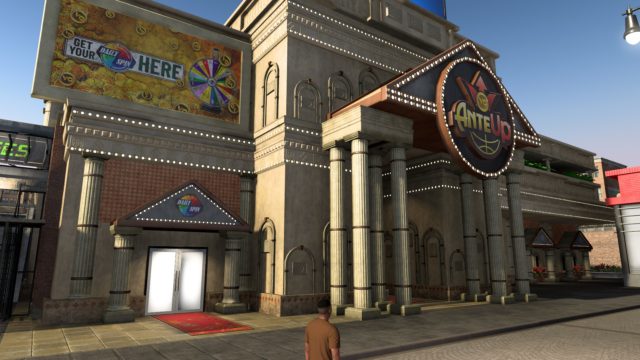
The core of the problem, which is ultimately the core of all of the problems I’m going to talk about, is that the NBA looked to punish one of their own people, and throw him under the bus, because of pressure (and laws) from another country that they felt would threaten their market access to China. And, in truth, it did… after they changed their stance and tepidly backed the GM (and said it’s not their place to decide what is and isn’t right to say), China blacklisted NBA preseason games and denounced the people involved on their state-run media.
For the NBA, the initial reaction seemed a bit out of character. As a league, they’ve usually been quite savvy in understanding their core demographics and supporters, and while they have been trying to expand more and more, they have typically backed their players and coaches when it comes to speaking out on social issues… or at least they did so when it helped the bottom line. Turns out, that may be the only thing they really care about.
Blizzard tells the NBA “Hold my beer…”
Not content to just stay in that specific realm of bad behavior, Actiblizz has decided that they want to start some sort of combination fire and ****storm and stick their faces squarely in the middle of the whole mess. The NBA reversed course, eventually, even if the response was rather lackluster… Blizzard doesn’t show any action, yet, but they also haven’t seen as much of the potential fallout.
If you’ve been following the direction of Blizzard at any point in the last several years, you know that they are just all-in on trying to turn streaming into something they can monetize. Hearthstone and Overwatch, two of their biggest games (and where they make the majority of their money), are big competitive play games that regularly attract millions of viewers around the world. It’s debatable if that’s been a good or bad thing for the company and their games, but not the point here.
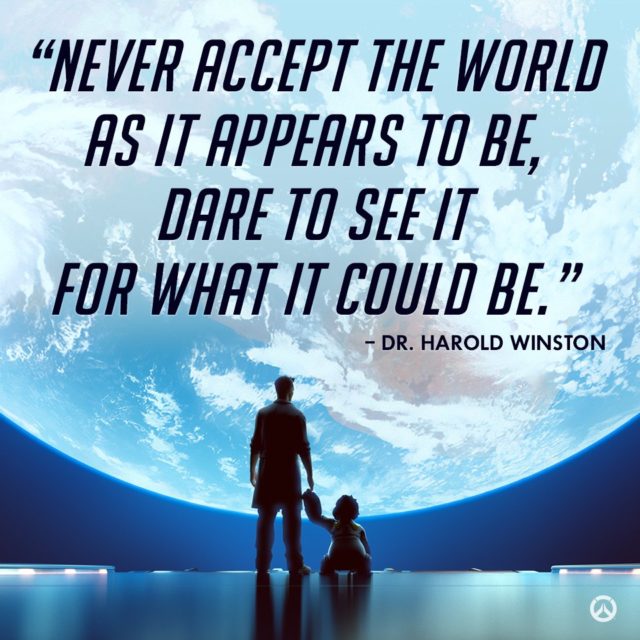
In a post-match interview on their Taiwanese Twitch stream, a popular streamer and professional player Chung “Blitzchung†Ng Wai, donned a gas mask that’s been worn by protestors in Hong Kong (in defense of, you know, getting gassed), and showed support for the protestors by sharing one of their slogans. It’s also notable that the streamer is based in Hong Kong, so he would seem to have a personal stake in what’s going on.
Not one to be outdone or to do anything original or unique, just to take other people’s ideas and try to turn it to 11, Blizzard came down hard on the streamer. They kicked him out of the competition, stripped him of his prize money, and banned him. They also fired the two announcers, apparently for being there.
Here’s the justification that Blizzard provided, which is apparently part of the rules they provide.
[Any action] brings you into public disrepute, offends a portion or group of the public, or otherwise damages Blizzard image.
Let’s go through all the things wrong with this “rule.” First, and foremost, it’s simply nonsense… it doesn’t provide any means or guidelines, it’s effectively just a “get out of jail free” card for Blizzard to punish, subjectively, as it sees fit. Of course, these rules only apply to players and fans, not to Blizzard. It can do disreputable things all day long, like laying off hundreds after a profitable year, cutting benefits and bonuses, abusing its workers with crunch periods, and pushing exploitative monetization tactics in its games.
You know what can offend a portion or group of “the public?” Everything. Absolutely everything will offend someone, somewhere. I mean, I’m sure this article offends someone (and who knows, maybe will get us banned in China); it’s because we don’t cover enough LEGO… because LEGO does a lot of things that offends us (also another article I’m working on).
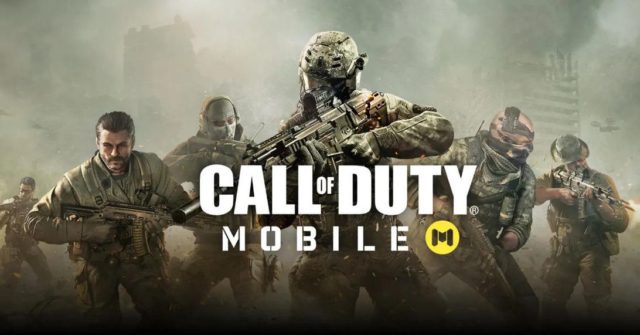
That’s not to say I’m all for going carte blanche on speech… that’s the tricky thing about freedom of speech (as it exists in the US, which is unique in how it treats it… and it’s even thornier here given that Blizzard is a US company but this was dealing with non-US participants); you know, freedom to say something isn’t freedom from consequences. It’s complex, weird, and a thorny thing.
Here, the problem seems to be that Blizzard isn’t really punishing the speaker for what he said, per se, more where he said it and because who could have heard it. Make no mistake, it’s all about money… the speaker was in Taiwan (which, complexly, is and isn’t part of China), from Hong Kong (where his speech wasn’t illegal… even if it is contentious), but China hates all speech that isn’t “China is the Greatest” and also happens to be where Activision|Blizzard would like to grow their revenue.
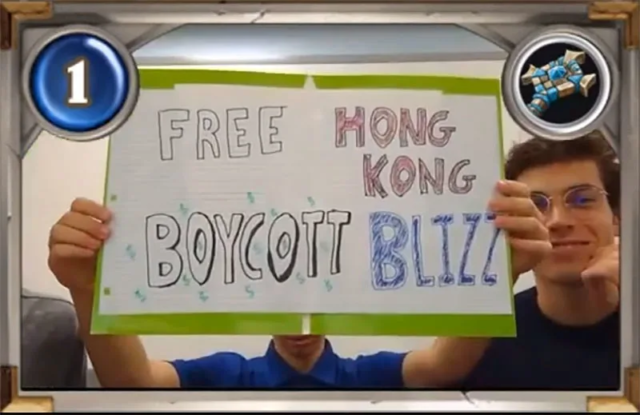
When an American collegiate team did the exact same thing, they were not punished; users in America and Europe can post all day long, with thousands of duplicate threads, about this, and they aren’t getting punished. That team has more ethical backbone than Blizzard, and withdrew from a competition after stating it was hypocritical for Blizzard to punish one streamer and not them. The Blizzard subreddit shut down temporarily in protest, and the discussions there still seem to be overwhelmingly against Blizzard on it (though they have their defenders, because of course they do).
How Important is the Money?
I’m not saying that it’s an easy line for Blizzard… China is a growing market, while the Americas and Europe are more steady for them. However, it looks very much like this could cost them in the long run if sentiment continues to run against them. Blizzard makes up 30% of Activisions revenues, and that contribution is dropping. The reasons behind that are complex, but the main thing is Blizzard is simply out of ideas and isn’t releasing any new products. There are no expansions for WoW this year, Hearthstone has been bleeding players, they continue to pretend Starcraft isn’t a thing except in South Korea, and Diablo is apparently only relevant if you have phones.
China is where Activision|Blizzard sees growth, and that isn’t a bad assumption. eSports is big there, and Hearthstone, the game at the root of this, has a significant audience in China. It gets stickier when you consider that Chinese company Tencent owns a 5% stake in Activision as well (as well as a similar stake in Ubisoft, Paradox Interactive, a 40% stake in Fortnite developer Epic, 80% stake in Standing Stone game, and 100% ownership of Riot) – they are the largest video game company in the world.
I’m not claiming this is an easy line for the company to walk… it obviously is not, and there are costs and risks to being a big multinational corporation. If you want that Chinese money, you’re going to have to play by their very restrictive and draconian rules. Much like speech having consequences, so does acting against the norms and wishes of your customers. That’s what we’re seeing here… Activision|Blizzard doesn’t want to lose the money in China, but trying to play that game means they’re going to anger people that are still their core customers and lose money.

That can have huge consequences… the stock market only cares about growth, which it (wrongly) assumes will go on forever and punishes them when it fails to do so. It’s how a company can have record earnings, and successfully hit targets, but still take a hit in stock prices because of some vague growth targets or expectations. That being said… growth means nothing if you anger your core and all of that growth is offset by losses elsewhere. EA learned that in a very hard way when it came to backlash on Battlefield V and Star Wars Battlefront 2… they angered their core customers, the games missed targets, and it impacted their earnings.
It doesn’t just stop there… bad behavior continue to comes out that damages how the public sees Blizzard. A guild in WoW was forced to change their name and their founder suspended because a bunch of bigots found it offensive (based on the logs provided, anyway); it was a cheeky name that was meant as pride and taking ownership, but the automated tools banned them and apparently the people reviewing it agreed. Blizzard backtracked, and reinstated them, but said it can happen again.

A lot of the detractors from the current call to #boycottblizzard laugh and say most of the outraged people will be back and paying in a few weeks… and honestly, they’re probably right. Boycotts rarely work (and I’ll admit I’m not a fan of organized boycotts… they often strike at the wrong target, but that’s a different discussion)… at least in isolation. But when you see misstep after misstep by a company, and the anger keeps on coming, that can have lasting effects.
EA has already seen this, with huge failures of major games that may have permanently tarnished the reputation of their brand and that of respected developers (like, say, Bioware) under their control. Activision|Blizzard is at risk of that same thing… maybe someone goes back to playing WoW or Hearthstone, but how likely are they to open their wallet and buy the next game? Based on slumping sales, the answer seems to be “less likely.”
Not everyone at Blizzard agrees with what happened.
Both the “Think Globally” and “Every Voice Matters” values have been covered up by incensed employees this morning. pic.twitter.com/I7nAYUes6Q
— Kevin Hovdestad (@lackofrealism) October 8, 2019
The problem here is that Blizzard isn’t just doing damage to their reputation among fans, they’re also damaging the trust of their own employees. You can’t claim to have company values (even putting up a statue for them) that every voice matters when you bow to authoritarian forces to silence those voices.
If you follow the industry as much as the games (which, obviously, I do), it’s no secret that morale at Blizzard has been in the toilet lately. Internally, Activision has been taking over more and more of the management from Blizzard of old, and there have been a number of high-profile departures. As that’s happened, it feels like the Blizzard of old, at least the good parts, has slowly been hollowed out and replaced by a sterile and clueless set of drones that will rip the reputation and portfolio of the company apart to make a few extra bucks in the short term.
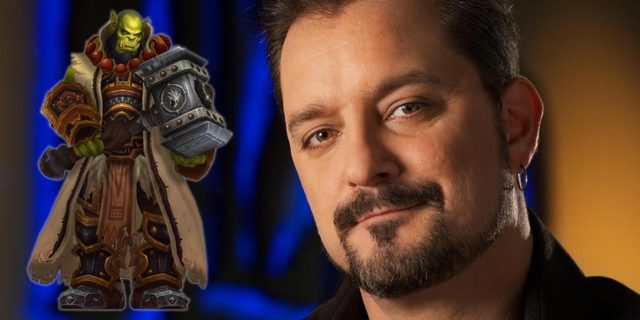
Chris Metzen was the heart of World of Warcraft and the voice of Thrall (and still is), left the company 2016. In hindsight, that was the start of an exodus that saw Frank Pearce and Michael Morhaime, both founders of the company, leave in the past year. Only Allen Adham remains, supposedly working on new IPs and projects, but based on other information, they are nowhere near launch. Ben Brode, the lead developer (and honestly, heart and soul) of Hearthstone left last April. Development was mostly scrapped for Heroes of the Storm, and the Diablo team has supposedly been working on a sequel that is repeatedly hampered by development… causing more of their rank and file to leave.
Video games are made, and played, by people; that means it comes with the complexities, feelings, and beliefs of those people. Anyone who says they “aren’t political” is lying… everyone is to some extent. The world today is connected and full of conflict and change, and everything that’s made, be it music, movies, or video games, is in part an expression of the world around us. What Blizzard did may have been a good choice for their business one way, but I would argue that it was ethically wrong overall, at least in my personal opinions, but more than that, it was short-sighted. They’re banking on reputation and name in keeping existing customers… but that’s coin that’s no longer theirs to spend. And once a customer leaves, it’s expensive to get them back. It’s far cheaper to keep an existing customer happy and spending on your product than it is to go find a new one, after all.
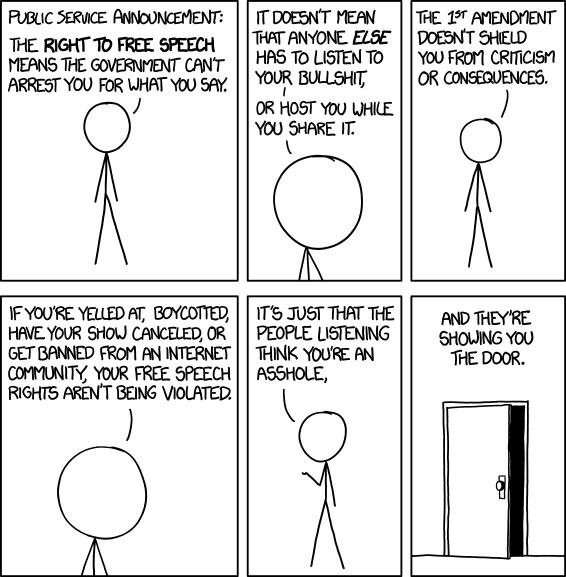
What Blizzard did wasn’t illegal, but that doesn’t make it right. Interestingly, their bootlicking for China goes back awhile; months ago, they added several phrases related to the profanity filter for WoW that were directly related to the protests. After I wrote most of this article, Blizzard decided they were going to respond at long last… and let’s just say that it was mostly bending backwards to claim they were living up to their ideals, while in truth they were failing them at every level. I mean, come on… does anyone, anywhere, believe this line?
The specific views expressed by blitzchung were NOT a factor in the decision we made. I want to be clear: our relationships in China had no influence on our decision.
You know, I don’t think that anyone, even if you feel like defending Blizzard for what they did, will see that as anything other than a boldfaced lie. Blizzard wants it both way… it wants to design and market games that are around being a hero or savior, fighting against injustice and oppression… but at the same time will strike out at someone for doing that same thing because it “damages their brand.” They’re sitting at a crossroads, where they have to decide exactly how much they’re willing to bend to one country at the cost of support in another. They aren’t going to get it both ways, and it will be telling to see what’s more important to them in the long run.
Jason Schrier at Kotaku, one of the single best writers and Journalists in gaming (seriously, I cannot recommend his book, Blood, Sweat, and Pixels, enough), had a very interesting point on Twitter in comparing the current actions of Blizzard to the International Olympic Committee (IoC)’s punishment and ban of Tommie Smith and John Carlos for throwing up the Black Power (or, as Smith claimed in his Autobiography, a human right salute).
It’s always interesting to think about how history remembers political statements at “apolitical” events https://t.co/5x3hoCk6wu pic.twitter.com/d5CoJposQe
— Jason Schreier (@jasonschreier) October 12, 2019
It was deemed an overtly political statement that took attention away from the athletic competition, which were supposedly supposed to be apolitical (you know, as competitions between nations always are). I mean, back in the late 1930s political salutes were fine, as long as the IoC agreed with them, but this one was obviously bad (despite, you know, being in the middle of the Civil rights struggles and violence in the US). Two men had a platform and used it to make a statement about a legitimate problem… and paid a huge price for it.
Companies and Appeasement
It’s easy for me to take swipes at Blizzard, because they’ve been frustrating me as a fan for some time, but what about companies that I like when it comes to bending over backwards (or companies that I really don’t)? I’m not a basketball fan… I neither like or dislike it, it’s just not my bag, so the NBA didn’t affect me all that much. Because examining ethical quandaries can’t be straight-forward or easy, shortly after news broke on all the Blizzard punching itself in the junk over and over, it was revealed that Apple bent over backwards as well.
I suppose I’m an Apple fanboy in the same way that I’m a Final Fantasy fanboy… I don’t really think of myself as one, but I glance around and realize I’m heavily invested in a particular brand. I’m invested in Apple, both personally and professionally, and they’ve been my platform of choice for over a decade now. I’m typing this on a Macbook, after all… not even a work one (which I also have), but my personal one. I’ve been considering a replacement for it, as its getting a little long in the tooth, which if you’ve ever checked out Apple prices, is not an insignificant investment.
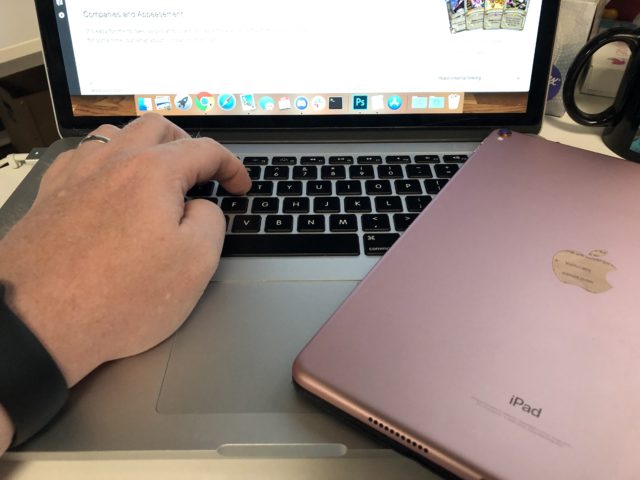
Apple is a weird company, capable of doing both good and bad in the world. Tim Cook, Apple’s CEO, has been a huge advocate for corporate responsibility when it comes to sustainability and the environment. Their record with labor is a bit shakier, with most of their manufacturing being in China and through third-party OEMs like Foxconn (who basically make every PC and phone in the world).
When it comes to China, Apple is in a strange spot that is hard to support, but also a lot more clear-cut compared to what the NBA and Activision|Blizzard are doing. Nearly all of Apple’s products are made in China – in fact, nearly all electronics are made in China. Numbers from 2015 show that over 80% of personal computers and 70% of smartphones were made in the country, and likely those percentages have only gone up. PC manufacturing has been shrinking slowly for years, but the result has been that US manufacturing has shut down – the only computer manufacturing of note still in the US is ironically Apple’s Mac Pro, which is assembled in Austin, Texas (every part inside it is likely still made in China, though).

In short, Apple isn’t trying to get access to the Chinese market or money, they’re already there. Their products are sold in China, built in China, and marketed in China. It’s the third-largest market for Apple’s sales, accounting for some $44 billion dollars in sales last year. The stakes for Apple are huge, and losing access to that would hurt the company in unimaginable ways (though it should be stated that it would also hurt China, given the amount of manufacturing that Apple does there).
That doesn’t make the slimy feeling of Apple removing an app from the Hong Kong app store that was designed to help protestors avoid the police (who have been employing some brutal tactics against them) just days after approving it. The move can’t been seen as anything other than bowing to Chinese pressure, and the public is taking it as well as the other moves. Apple’s half-hearted response isn’t any better than Blizzards, and their excuses don’t hold much water, given that one of the most popular navigation apps, Waze, does exactly the same thing that this app was banned for. Maybe Apple should have stuck with the credible excuse of “it’s all arbitrary, I can’t believe you think we have rules for approving apps.”
It’s also not the first move by Apple in appeasement towards the Chinese government; in a recent iOS update, the company removed the Taiwanese flag from iOS 13.1, but only in China and Hong Kong. The app it removed wasn’t the first, either, as it’s removed dozens of other apps that can be used by people trying to bypass government control of the internet or censorship.
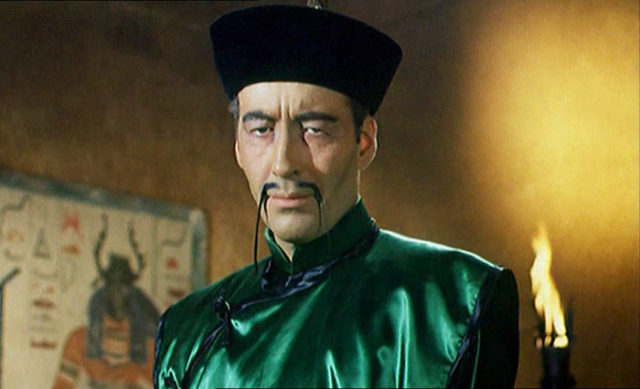
Apple, of course, isn’t alone in this. Disney’s companies, especially Marvel, have long catered and altered their products so as not to offend Chinese audiences, by which they mean the Chinese government. The problematic character of the Ancient One in Doctor Strange, for example, is from a fictional land somewhere in Tibet in the comics, and was whitewashed to have Celtic history in the movie given China’s long-standing censorship of anything to do with Tibet.
As a character, it was a landmine on multiple sides: the original character was a racist caricature, the new one was whitewashed, and the history of the character wouldn’t fly in the MCU’s largest international market. You can argue that this is a bit different from what the NBA or Blizzard did… and that’s a fair point. These companies are censoring themselves in trade for access to the market, and that isn’t an inherently bad thing (though it’s easy for such actions to get into bad places in how they do it). Activision|Blizzard and the NBA, on the other hand censored, and punished, others in fear of losing that market… and there’s no amount of spin or polish they can use to make that turd pile shine.
Not everyone has been on board with the actions being taken, and some companies since have gone even farther. Riot games, maker of stupidly-popular League of Legends, which as I stated earlier is wholly owned by Tencent even though its based in the US, banned players and commentators from discussing politics on-air. Given that LoL’s popularity is around streaming and e-sports, it effectively silences everyone involved.
Epic supports the rights of Fortnite players and creators to speak about politics and human rights.https://t.co/GWxDjKVjeJ
— Tim Sweeney (@TimSweeneyEpic) October 9, 2019
Epic Game’s, maker of “I’m obviously too old to get why this is popular” Fortnite and the Unreal Engine, where Tencent has a huge minority stake, took the opposite stance. I could get into a ton of reasons why you should look side-eye at Epic and the Epic Store, and honestly, doubt some of the stuff that they promise to do and later backtrack on, but their statement was direct and clear… coming straight from studio head Tim Sweeney. Given that Fortnite makes somewhere in the realm of eighteen bajillion dollars a minute, this could have pretty huge ramifications on them making seven kajillion more dollars.
Other studios have consistently resisted the efforts, or listened to their fans and backed off from plans to do the same thing. Ubisoft didn’t make changes to Rainbow Six Siege, one of their biggest titles (though as someone who owns, played, and really didn’t like it, I wonder why) after consumer backlash to it. Paradox Interactive has refused to make changes to their older games for using historically accurate maps that list Taiwan, Tibet, and other countries on them.
What Does This All Mean?
This problem isn’t going to go away anytime soon, and no one is going to be happy at the outcome from it. Mega-conglomerate Tencent, which I’ve mentioned several times above, is continuing its expansion into the video game industry and eventually it’s just going to be easier to list the companies they don’t have a stake in.
This is, at its core, an issue where two things: capitalism and free speech, are in direct conflict. Companies are taking up the mantle to silence people and players in order to make more money and grow more internationally; as a system, capitalism rewards that behavior and punishes companies that don’t keep growing and expanding forever. Given other discussions lately, you can say the same thing about conflicts between the economy and environmentalism.
I’m not advocating at overthrowing capitalism here… it’s a system I’m a part of and benefit from like anyone else. I’m not calling for boycotting anyone, or trying to punish companies for doing what’s within their rights. If anything, I’m just suggesting asking questions and looking at the things we use and consume… the world is complicated, messy, and weird. I’m not telling you to stop (sometimes I may be suggesting strongly), because often, the choice isn’t what right or wrong, it’s about what you’re willing to deal with.
Sometimes we’re all doomed just because we once bought a tomato… but that doesn’t mean we should stop trying to change, or asking that the companies that get our money change as well. Activision|Blizzard has made it pretty clear that they aren’t going to listen to us, they’re going to continue to abuse customers, fans, and their own employees. They only care about money, ultimately… and it turns out, that’s the one thing we as consumers get to control.

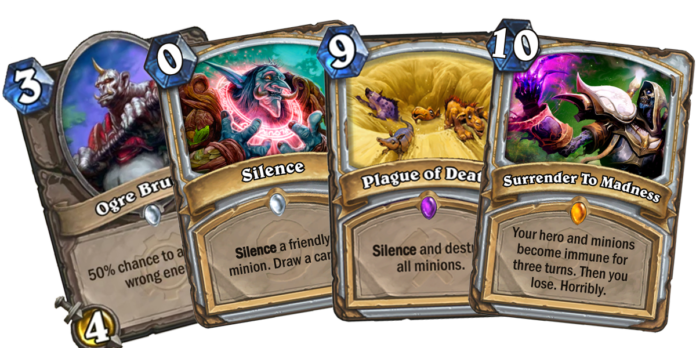










![[SDCC] Collider Reveals LEGO DC Super Heroes San Diego Comic Con Exclusive Set](https://www.fbtb.net/wp-content/uploads/2015/06/LEGO-Superman-SDCC.jpg)



[…] sort of mulling over if I wanted to talk about it on here or not. Blizzard is a company I’ve talked about before on this site, a developer who used to be one of my absolute favorites of all time, who’s made […]